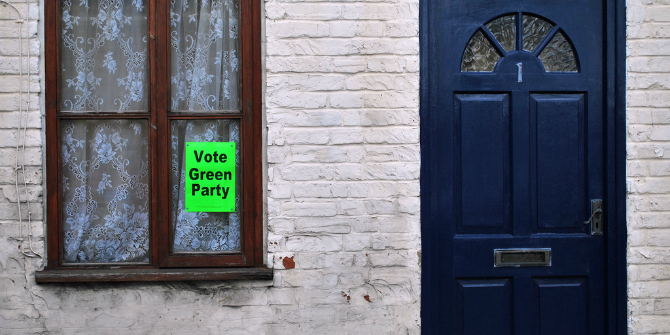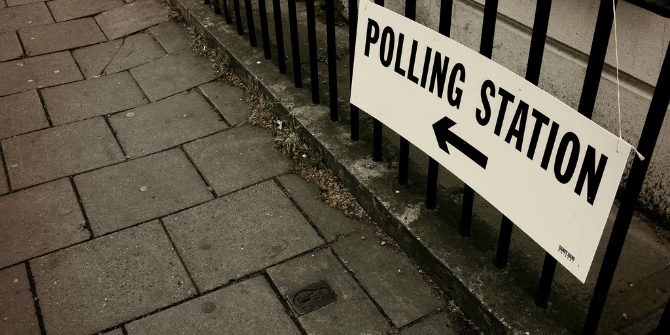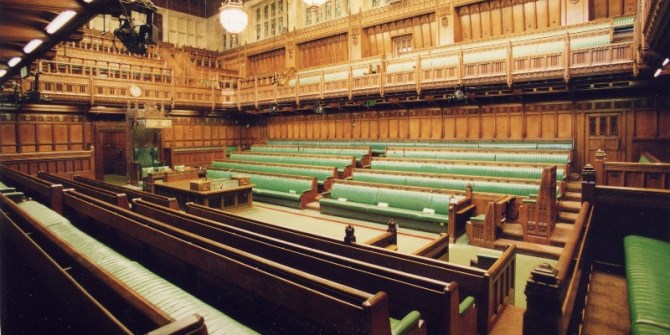 Polling Matters is an independent, non-partisan podcast providing expert polling news and analysis, with guests, in the run up to the General Election. In the most recent episode, the team spoke to Roger Scully from the University of Cardiff to discuss the political situation in Wales and the role nationalist parties might play in Westminster in the event of a hung parliament after the election. In this post, Keiran Pedley examines why so little attention is paid to Welsh politics in Westminster and the opportunity the General Election presents for Plaid Cymru.
Polling Matters is an independent, non-partisan podcast providing expert polling news and analysis, with guests, in the run up to the General Election. In the most recent episode, the team spoke to Roger Scully from the University of Cardiff to discuss the political situation in Wales and the role nationalist parties might play in Westminster in the event of a hung parliament after the election. In this post, Keiran Pedley examines why so little attention is paid to Welsh politics in Westminster and the opportunity the General Election presents for Plaid Cymru.
You can listen to this week’s polling matters podcast here.
One interesting aspect of this parliament is the lack of media attention paid to events happening in Wales. As an Englishman, living in London, I had long assumed this was because there was little to say. To an extent, we must say that this is true, at least in comparison to Scotland. There is little debate on the constitutional future of Wales, no referendum has taken place and there has been no ‘Plaid surge’ akin to that of the SNP in Scotland either. Whilst the rise of the SNP threatens the future of Scottish Labour and Ed Miliband’s chances of becoming Prime Minister, Welsh Labour looks set to win the most votes and a majority of seats in Wales for the 20th election in a row and right now at least, its control of the Welsh Assembly does not look under threat either in 2016.
That does not mean that everything is ‘rosy’ for Labour in Wales of course. As Roger Scully recently posted on this very blog, after an initial surge in the polls after the last election, Labour has been leaking support and now polls at roughly the same vote share that it achieved in 2010. This was, incidentally, almost 20 points lower than the vote share achieved in 1997. This could change between now and May of course but appears to reflect a wider trend in the rest of the UK, where enthusiasm for a Labour Government seems muted at best. This means that Wales may only contribute a net gain of 2 seats to Labour’s attempts to become the largest party at the next election. In other circumstances, it could offer much, much more.
So with Labour floundering, why are we not talking about a ‘Plaid surge’ in Wales as we are with the SNP in Scotland? Well, of course, we should start by pointing out that Plaid are not the SNP. They are not in Government in Wales for a start, have not had the exposure of a referendum and despite the popularity of Leanne Wood among the party faithful, their leader does not command the Welsh political agenda in the way that Alec Salmond or Nicola Sturgeon do in Scotland. Indeed, local party leaders in Wales do well to be recognised by the public at all. Furthermore, UKIP have a much stronger presence in Wales than they do in Scotland, suggesting that Plaid has not managed to articulate a form of Welsh nationalism that can command mass appeal in the way that the SNP has in Scotland.
Perhaps this does not matter. Plaid would of course love an SNP-style breakthrough in Wales at the General Election but the chances are that they will not need one in order to have more influence than ever before. If, as looks likely, no party can form a Government alone after the election then nationalist parties in Wales and Scotland will have a big say in who forms a Government and this will come at a price.
The key question is how prepared are these parties for this? We know that they have pledged to negotiate together, but how firm will this commitment be if Westminster parties try to play them off against each other – they are, after all, competing for the same pot of money. And what form of support will they offer? Both Plaid and the SNP will surely be mindful of the fate that has befallen the Liberal Democrats this parliament, who finally got into Government only to face electoral annihilation of some kind now in May. Both Plaid in Wales and the SNP in Scotland will do well to beware any deals that may hurt them in devolved elections next year and erode their support in the longer term.
Nevertheless, turning back to Wales, Plaid does have an opportunity in the event of a hung parliament. It can go into the 2016 devolved elections with its profile raised through national TV debates (if they happen) as the party that secured a better deal for Wales. It is an opportunity to challenge Labour hegemony in Wales that it cannot afford to pass up, the question is, is it ready and capable to do so?
 Keiran Pedley is an Associate Director at GfK NOP and presenter of the podcast ‘Polling Matters’. He tweets about politics and polling at @keiranpedley.
Keiran Pedley is an Associate Director at GfK NOP and presenter of the podcast ‘Polling Matters’. He tweets about politics and polling at @keiranpedley.







